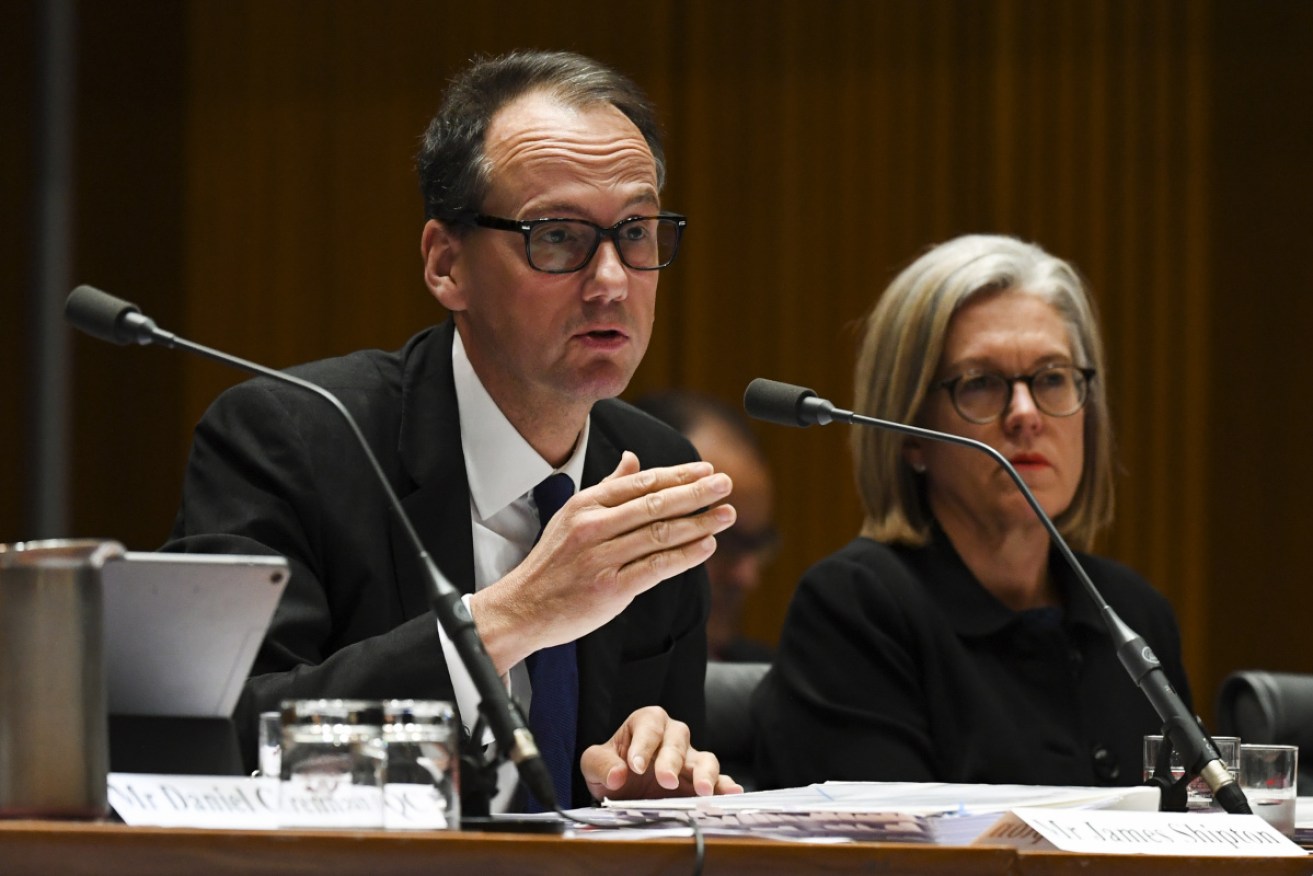Federal Court ‘overcharging’ verdict confronts CBA with multi-million-dollar penalty


ASIC's heavy hitters, chair James Shipton and deputy Karen Chester are going after CBA for millions. Photo: AAP
The Commonwealth Bank is headed for another multi-million-dollar payout after the Federal Court found it had overcharged 2269 people $2.9 million in overdraft interest rates in a case run by regulator ASIC.
The bank was found to have engaged in misleading and deceptive conduct.
In yet another case stemming from the Hayne royal commission in 2018, the court said instances of overcharging occurred 12,119 times between 2011 and March 2018. No decision has yet been made on penalties but they will be decided on “the number of breaches of law, not on the financial magnitude of the offences,” said Josh Mennen, principal with plaintiff firm Maurice Blackburn.
According to the statement of claim brought by ASIC, CBA told its affected business clients it would be charging them overdraft rates of between 5.3 per cent and 14.55 per cent, with most near the higher figure.
But the bank charged some customers as much as 34 per cent on their overdrafts and kept doing so for a number of years.

Commissioner Kenneth Hayne shook up the banks and the regulators. Photo: AAP
“It was a particularly egregious action given there were over 12,000 instances – a serious error on the part of CBA,” said Gerard Brody, CEO of the Consumer Action Law Centre. “People expect them to get these sorts of things right.”
ASIC was stung by criticism of its weakness during the commission, and under chair James Shipton, who recently announced he will be stepping down, and deputy Karen Chester, the watchdog has since been gunning for miscreant banks.
Customers complained
The bank did not discover the overcharging till customers began to complain about it from mid-2014, and by later that year it began to try to remedy the situation manually. However that didn’t work and the overcharging continued until 2017 when systems changes finally stopped it.
The bank then remediated by paying aggrieved customers $3.74 million, which included the amounts they were overcharged plus interest. Despite the fact that the remediation had occurred by July 2017, six months before the Hayne commission commenced, ASIC took action to get a penalty imposed to ensure there was a significant cost to such misdeeds that would deter them in the future.
“There needs to be significant penalties to ensure that the banks don’t just view legal breaches as simply a cost of doing business,” said Mr Brody.
The magnitude of the penalty for CBA will be determined by the court on April 6 if the bank and ASIC aren’t able to reach a satisfactory solution on it in the mean time.
A lawyer who works in the area said lots of factors will be considered in establishing the penalty and that such decisions are complex.

CBA customers found less in their accounts than there should have been. Photo: AAP
Mr Mennen said CBA’s actions were likely to be viewed poorly by the court because it had taken a long time to report the issue to ASIC.
“The breach notice was issued years after customers began complaining about being overcharged,” he said.
The 12,119 breaches recognised by the court relate to each time the bank told customers it was charging them correct interest. The court also found that on each of the 12,119 occasions that CBA breached the ASIC Act, it also breached its general obligation as a financial services licensee to comply with financial services laws, in contravention of the Corporations Act.
Under the law applying when most of the breaches occurred, the penalty for such breaches was $1 million. Since then the figure has been increased to $10 million, but it is unlikely that a maximum penalty would be applied in this case, lawyers say.
Banks have paid up
However, big banks have been hit by massive penalties in recent times. Westpac was last year stung with a $1.3 billion hit for money-laundering offences – a crime CBA had been penalised to the tune of $700 million back in 2018.
Late in 2019, NAB was forced to pay out $49.5 million to 45,000 customers sold junk insurance, and Westpac is likely to be hit with a $14 million penalty over financial-advice breaches following a High Court decision earlier this month.
Mr Mennen said the Hayne commission had performed well but it was now up to the government to act. “My sense is that the royal commission did its job and shone the light onto serious misconduct in the financial system,” he said.
“But two years on the government hasn’t done its job. Less than half of its [54] recommendations have been implemented. We need to ensure the law is enforced in the financial system.”
ASIC commissioner Sean Hughes said: “Financial services institutions need to have appropriate systems, governance and controls in place to ensure they deliver on promises made to their customers. By CBA failing to take adequate steps to rectify this error after it was identified, this resulted in customers continuing to be overcharged.”
The New Daily is owned by Industry Super Holdings








